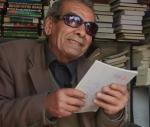You are here
Digital technology projects to strengthen refugee resilience in Jordan conclude
By JT - May 13,2025 - Last updated at May 13,2025

The Royal Scientific Society and University of Bradford organise a final workshop for digital technology projects aiming at enhancing refugee resilience (Photo courtesy of the Royal Scientific Society)
AMMAN — The Royal Scientific Society (RSS) and the University of Bradford have organised a final workshop for digital technology projects aiming at enhancing refugee resilience.
Funded by the Royal Academy of Engineering-UK, the workshop was organised in collaboration with Applied Sciences Private University and Yarmouk University, according to a RSS statement.
The event marked the completion of two main projects. The first project, Golden Thread to Sustainability, Inclusivity, Affordability and Futureproofing in Global South through Innovative Advancements in Net-Positive Housing (SIAH-NP), introduced a new model for housing in developing countries, focusing on sustainable, innovative, and affordable housing.
The project views housing not just as shelter, but as a tool to promote sustainable development. It seeks to improve energy, water, and food systems, while also raising the quality of life in surrounding areas.
SIAH-NP adopts a net positive approach, designing housing systems that create more environmental and socioeconomic value than they consume.
This is achieved by integrating Modern Design Methods of Construction, circular economy principles, and smart decentralised systems. These components work together to minimise environmental impact and increase resilience to climate change.
The second project, Community Mapping of the WEFE Nexus within Refugee Camps in Jordan (CoMAP), focuses on building community-based mapping frameworks for managing the water, energy, food, and ecosystems nexus in refugee camps, using Baqaa camp as a case study.
It emphasises the role of community participation in mapping and decision-making for better resource planning and management.
Despite earlier efforts in mapping, much of the existing data in refugee camps is either outdated or inconsistent. CoMAP highlights the need for updated, accurate geospatial data to support long-term planning.
The workshop underlined the importance of these projects in improving refugee living conditions, promoting sustainability, and supporting social justice in refugee communities.
It also emphasised their potential in helping policymakers, urban planners, and housing experts design practical solutions for the housing sector.

















